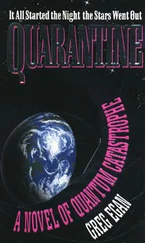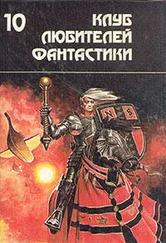Greg Egan - The Eternal Flame
Здесь есть возможность читать онлайн «Greg Egan - The Eternal Flame» весь текст электронной книги совершенно бесплатно (целиком полную версию без сокращений). В некоторых случаях можно слушать аудио, скачать через торрент в формате fb2 и присутствует краткое содержание. Жанр: Фантастика и фэнтези, на английском языке. Описание произведения, (предисловие) а так же отзывы посетителей доступны на портале библиотеки ЛибКат.
- Название:The Eternal Flame
- Автор:
- Жанр:
- Год:неизвестен
- ISBN:нет данных
- Рейтинг книги:4 / 5. Голосов: 1
-
Избранное:Добавить в избранное
- Отзывы:
-
Ваша оценка:
- 80
- 1
- 2
- 3
- 4
- 5
The Eternal Flame: краткое содержание, описание и аннотация
Предлагаем к чтению аннотацию, описание, краткое содержание или предисловие (зависит от того, что написал сам автор книги «The Eternal Flame»). Если вы не нашли необходимую информацию о книге — напишите в комментариях, мы постараемся отыскать её.
The Eternal Flame — читать онлайн бесплатно полную книгу (весь текст) целиком
Ниже представлен текст книги, разбитый по страницам. Система сохранения места последней прочитанной страницы, позволяет с удобством читать онлайн бесплатно книгу «The Eternal Flame», без необходимости каждый раз заново искать на чём Вы остановились. Поставьте закладку, и сможете в любой момент перейти на страницу, на которой закончили чтение.
Интервал:
Закладка:
Tamara heard skeptical noises from the same group who’d found Giusta’s appeal so hilarious. She forced herself not to glare at the idiots; there was nothing to be gained by starting a brawl.
Giusta introduced Tosco as an expert whose perspective would balance Amanda’s partisan account.
“You will all have your personal views on the kind of society that these experiments seem to be offering us,” Tosco allowed. “And perhaps some people are attracted to this vision of an end to the famine, with women living through the birth of a child and going on to meet the fate of men. But we need to examine the consequences much more closely.
“In such a world, who would raise the children? Their mothers? Nature has never had reason to shape women’s temperament to that task. We’ve all heard moving stories of the tenacity of women caring for the children of solos and runaways: these courageous women raised many of our grandparents, whose own mothers had taken to the Peerless alone to escape the brutality of their cos. The excess of women among the first travelers was unprecedented, and we should be proud that we survived the disruption that followed. But we can’t build a safe, stable society on a state of perpetual emergency. Enduring a calamity is admirable; creating one by choice would be the height of folly.
“Now, you might have heard rumors that some prospect exists for the same kind of procedure to give rise to complete families, with a male co. As Amanda has already explained, no second births have yet been demonstrated, and no male births at all. But let’s suppose for the sake of argument that the research continued and it led to such a result.
“The experiments already tell us what the outcome would be. The male arborines showed no interest whatsoever in the children of their cos whose births were induced by the light players. A society of struggling women would be fragile enough—but mixing in an equal number of men, all robbed of their natural purpose, would be disastrous.”
“We’re not arborines,” Tamara muttered irritably. She turned to Livio. “And if the First Generation had such a rough time, surely that was due to the holin shortage? How can he compare your friends fissioning without warning into four children each with a deliberate choice to create a single child of your own?”
Livio didn’t answer, but a woman in front of them hummed at Tamara reprovingly.
Tosco proceeded to raise and dismiss a series of ever wilder possibilities. “Perhaps in the distant future, after generations of research, we could redesign our biology completely so that men and women could come together in the usual way, and the only difference in the outcome would be the woman’s survival and perfect control over the number of children. How could anyone object to that? I can’t—but I don’t believe it’s anything more than a fantasy. This work began as an honest search for a means to achieve biparity without the famine, so that women would be spared the difficult price they pay for population control. And that’s still a worthy target to aim for: a simple drug that will mimic the reproductive effects of starvation, in our daughters’ lifetimes—not the remote prospect of our great-great-grandchildren bending every law of biology to their will.”
Giusta invited questions from the audience.
“Even if this method as it stands has flaws,” a woman asked, “why is that a reason to abandon further research?”
“It’s a distraction,” Tosco replied.
“A distraction for whom? From what? Which urgent project is suffering such a lack of biologists that three people continuing this work for a few more years would be a tragedy?”
Tosco said, “It distracts us all. Our whole culture is damaged by false promises like this.”
“Our culture is damaged?” His interlocutor buzzed. “By a few experiments on arborines? Can you be more specific?”
“I’m sure everyone accepts that we live in a complex, delicately poised—”
The questioner cut him off. “Are you worried that women will start delaying childbirth?”
“That’s one possibility,” Tosco agreed. This brought a few angry shouts from the audience until Giusta gestured for silence. “I respect women’s autonomy absolutely,” Tosco declared. “The timing of childbirth is a personal choice. But that doesn’t mean we can ignore the problems that would follow if the average age began to rise. If the children aren’t born until their grandfather is dead, their father is left to raise them alone—”
“Not if their mother’s alive!” a young man interjected. His friends broke into fits of mirth; apparently the idea remained so surreal to them that they couldn’t treat it as anything but a joke.
The next question was directed to Amanda, and again, the questioner was a woman. “Why are you defending the elimination of an entire sex?” she demanded angrily. “Is my co not a person to you? My father? My future son?”
Amanda said, “This work has barely begun. That we haven’t had a chance to demonstrate a male birth doesn’t mean such a thing is impossible.”
“But what need will there be for men? Why would anyone give birth to a son, when he’ll consume his share of the entitlement for nothing?”
“That’s your way of thinking, not mine,” Amanda replied stiffly. “I believe this research should continue until we learn exactly what kinds of reproduction are possible. That’s all. I’m not calling for any method—new or old—to be imposed on anyone.”
“And you can promise that will never happen, can you?” the woman asked sarcastically. “What if some future Council decides to turn half the farms over to another use? If we all had just one child—one girl—we could halve the size of the crop and still live comfortably.”
Amanda was bewildered. “We could spend a whole evening imagining the terrible things a future Council might do,” she said. “But do we really have to shy away from identifying our choices, out of fear that someone, someday might abuse that knowledge?”
Giusta took two more questions, but they were both phrased so abusively that she decided to call an end to the meeting. As Tamara and Livio made their way toward the exit, Tamara saw a scuffle break out near the front of the hall. Only a few people were actually grappling with each other, but they were surrounded by two much larger groups exchanging taunts.
“You want to vote for genocide?” a man shouted suddenly, brandishing a knife. A second man beside him seized his wrist and they struggled for a moment, then the knife floated away, out of reach of both of them. Tamara glanced anxiously at Livio; he was trying to move along the rope, but someone ahead of them had stopped to watch the brawling.
“Do you want to go around?” he asked her. Other people had already started leaving the rope, pushing off into the empty space above, apparently in the hope that some combination of the hall’s weak gravity and a wall-bounce or two would deliver them neatly to the exit.
“I don’t think so,” Tamara replied. Most people hadn’t practiced these kinds of maneuvers since childhood; she watched as two women collided in mid-air and began screaming abuse at each other. The hall could have done with a dozen more ropes to make the whole volume traversable—but there still would have been a crush at the doorway when the extra routes all converged again.
“They shouldn’t have packed the hall like this,” Livio complained. “It’s a miracle nobody’s passed out from hyperthermia.”
When they finally reached the exit they found people lingering outside, apparently just for the pleasure of shouting at each other. Further from the hall they were passed by two groups of youths engaged in running skirmishes, pummeling each other as they bounced off the walls of the corridor.
Читать дальшеИнтервал:
Закладка:
Похожие книги на «The Eternal Flame»
Представляем Вашему вниманию похожие книги на «The Eternal Flame» списком для выбора. Мы отобрали схожую по названию и смыслу литературу в надежде предоставить читателям больше вариантов отыскать новые, интересные, ещё непрочитанные произведения.
Обсуждение, отзывы о книге «The Eternal Flame» и просто собственные мнения читателей. Оставьте ваши комментарии, напишите, что Вы думаете о произведении, его смысле или главных героях. Укажите что конкретно понравилось, а что нет, и почему Вы так считаете.











